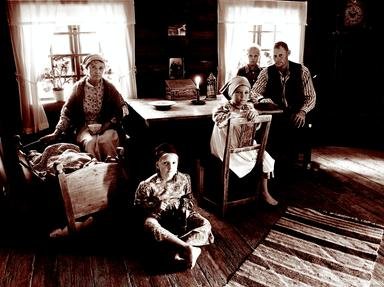Quiz Answer Key and Fun Facts
1. Prior to the election of 1800, members of the Federalist party held most of the prominent positions in the Federal Government. They had passed The Alien and Sedition Acts in 1798. These laws were viewed as a threat to individual liberties and were the basis of the campaign in the 1800 election. Who won the election and whom did the winner defeat?
2. In 1802, then President Thomas Jefferson sent diplomat James Monroe to France in response to French activity in Louisiana. Napoleon had sent troops into New Orleans and the Caribbean, which threatened American use of the economically important port. What caused Napoleon to send troops to New Orleans?
3. In 1803, shortly after the Louisiana Purchase doubled the size of the U.S., France and Britain went to war against each other again (They had already been at war from 1793-1802). The British destroyed the French Navy, and outlawed U.S. trade with France. The British seized American ships and forced Americans to serve in the British Navy. The British subjects who were settled in Canada also provided support to the Native Americans, who resented the Westward Expansion into their lands expediated by the Louisiana Purchase. The Native American tribes in the Northwest organized in 1805 under the Shawnee leader Tecumseh. Then Governor of the Illinois Territory William Henry Harrison engaged and defeated the British-backed Native Americans in 1811 in what battle?
4. The United States declared war on England in the summer of 1812. President James Madison asked Congress for the Declaration of War. Many of the New England States opposed the war with Britain, as they enjoyed a profitable trade relationship with that country. But British support of Indian attacks on frontier settlements and interference in the transport of Southern goods led the group of Congressmen known as the "War Hawks" to grant Madison his wish. The "War Hawks" were led by the Speaker of the House of Representatives, a native of Kentucky. Who was he?
5. The period following the War of 1812 was called "The Era of Good Feelings". With the defeat of Napolean in 1814, Europe entered a period of relative peace, and the U.S. Government turned its attention to domestic concerns. The vast addition of area caused a rapid westward migration of settlers. The increasing population resulted some of the territories applying for statehood. One particular concern with westward expansion was the issue of slavery. The Northern states opposed slavery on moral grounds, the Southern states valued it as a vital aspect of their agriculturally based economy. When Missouri applied for Statehood in 1818, there was considerable tension and division over this issue. If Missouri were admitted as a "slave state", it would have been a blow to the Northern States. What was the reason for this concern?
6. The election of 1824 featured the "Favorite Sons", four Republican candidates with strong support from their home states: John Quincy Adams from Massachussetts, Andrew Jackson from Tennessee, Henry Clay from Kentucky and William Crawford from Georgia. Clay and Jackson had a history of contempt for each other. In 1824, Clay held the position of Speaker of the House of Representatives, a position that allowed Clay substantial influence among the rank and file, as it does today. Now, among the four candidates, none of them won enough electoral votes to gain a clear majority. Jackson led the candidates in the popular vote, followed by Adams, then Crawford, and Clay held up the rear. By constitutional procedure, the House of Representatives was tabbed to settle the matter by voting for their choice of the top three candidates from the popular vote. This eliminated Clay from contention. Clay, the most powerful person in the House, threw his support behind John Quincy Adams and lobbied his fellows in the House to vote for Adams. As it turned out, Adams won the election. This was frustrating for Jackson and his supporters. They disliked Adams, considered him an out-of-touch aristocrat. When Adams appointed Henry Clay to a prominent post in his Cabinet, Jackson's backers screamed that this was a "corrupt bargain". To which post was Clay named that caused all the discord?
7. The Industrial Revolution in Europe brought new technologies to America. One of those changes was in the production of cotton cloth. Samuel Slater and Francis Cabot Lowell brought British innovations to America and Lowell built the first complete textile mill in which northern state?
8. Prior to the election of Andrew Jackson in 1828, government offices were largely held by members of the upper classes. In Jackson's Administration, many offices were vacated and subsequently filled with "common people." Jackson reasoned that upper class citizens were not the only ones capable of holding government office, and that anyone with ample intelligence can perform the tasks that comprise a public duty. He also wanted to fill those positions with loyal party members. This common practice of giving government jobs to party backers is referred to as the_________________
9. The explosion of the cotton trade in the South created a desire to remove the Southeastern Native Americans from their native lands to Indian Territory, in what would eventually become Oklahoma. The Federal Government, including Presidenct John Quincy Adams, protected them from local attempts to swindle the tribes out of their land. Jackson reversed the stance and proposed to Congress to Indian Removal Act of 1830. Over the next several years, Native Americans were forcibly relocated west of the Mississippi River. The last nation to be forced out were the Cherokee, whose harsh journey in 1838 and 1839 was befittingly called the ______________
10. Since the drafting of the Constitution, debate over the rights of the individual states has existed. In the 1830's and 1840's, political and economic differences erupted into hostilities between Congressional leaders from the Northeastern, Western, and Southern states over such issues as tariffs, sale of public lands, and internal improvements such as roads and bridges. These differences became known as sectionalism. When Congress passed a tariff bill that raised tariffs to an all-time high, South Carolina started to discuss leaving the United States. To reduce this threat, Vice President John C. Calhoun, also from South Carolina, proposed the idea that the individual states can rule a Federal Law unconstitutional on the grounds that it favors one section over another. This idea was referred to as ___________
Source: Author
trypanosome
This quiz was reviewed by FunTrivia editor
bloomsby before going online.
Any errors found in FunTrivia content are routinely corrected through our feedback system.

